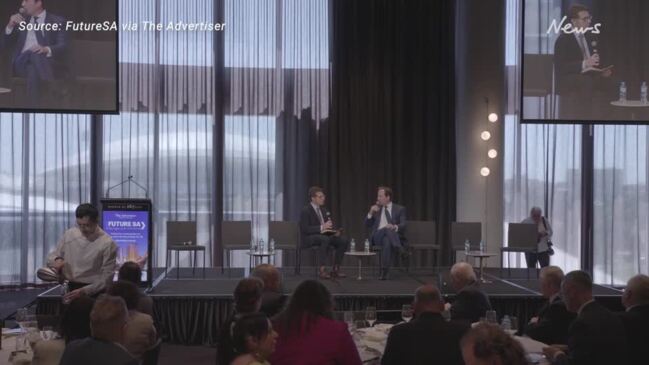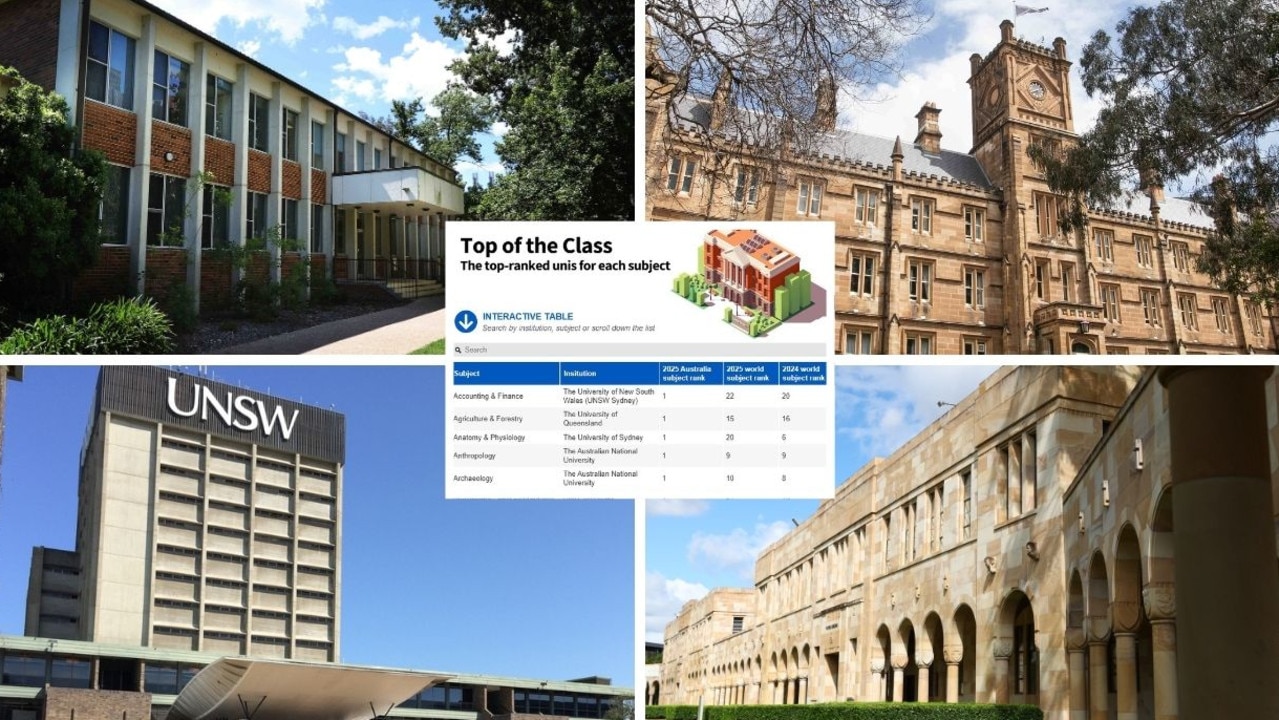Radical university reforms proposed by South Australian Productivity Commission report commissioned by Premier Peter Malinauskas
SA has lagged the nation in pay and innovation for decades, a new report says, as it points the finger at our three universities to get the state moving.

Radical university research reforms should be an engine driving highly skilled jobs to arrest deep interstate wage gaps, says a top-level report commissioned by Premier Peter Malinauskas.
Warning South Australia was stuck with lower wages than other states despite a strong economy, the South Australian Productivity Commission report recommends a university reform package aimed at “delivering high-skill, high-wage jobs for many more” people.
This would involve demanding Adelaide’s three universities hire researchers to work with businesses in “Critical Technology Applied Research Institutes”, backed by state government funding dependent on the reforms.
The draft report says the government’s flagship merger of the universities of Adelaide and South Australia would make reforms more likely to succeed and could drive cost savings to fund research and improve the economy.
Declaring a three-decade period of weak economic growth is impacting people’s daily lives, the draft report finds annual SA wages lag eight per cent below the national average and $8000 behind NSW on a productivity measure.
In a letter to the Premier, Productivity Commission chairman Adrian Tembel blames poor innovation performance, particularly in SA businesses, for this weak growth.
“South Australia is at the edge of some potentially very significant economic opportunities, particularly from the AUKUS submarine build and from the state’s potential to contribute to the global green energy transition,” Mr Tembel says.
“However, the weakness in our state’s innovation performance has not just held back incomes and jobs growth over the past decades, it also represents a barrier to South Australians fully realising the benefits of the emerging opportunities.”

SA’s economy has performed strongly as the Covid-19 pandemic eases, the report says, but this appears to be cyclic and the outlook is for low growth, with incomes falling further behind the eastern states.
In a veiled dig at the former Liberal government’s centrepiece Lot Fourteen precinct, the report finds “no evidence that buildings should be a major focus” of driving innovation.
“Our conclusion, based on the evidence, to date is that for the state to realise its potential we need to make universities and their connections to industry the engine of our transition to a dynamic, complex economy,” the report finds.
The report finds SA has “significantly fewer workers in innovation jobs” – if the state reached the national average there would be 7000 more scientists, computer programmers and engineers and 10,000 more if NSW and Victorian levels were matched.
A reform fund to support university changes is proposed, potentially including backing for start-up firms and early-career researchers, but money would be released only if reforms were achieved.
The five-point reform plan includes making impact and engagement a legislated requirement for the state’s three research universities – Adelaide, UniSA and Flinders – and building entrepreneurial skills among students.
The Productivity Commission report, called Turning Research into Economic Competitiveness for South Australia, was commissioned by the Premier last December when he warned strong economic performance had not fixed long-term challenges. A final report is due in May.
At the time, Mr Malinauskas said the state faced a “generational economic question” as a lack of economic complexity and diversity was “holding back wages and productivity growth and leaving us vulnerable to a changing international environment”.

UniSA deputy vice chancellor, research and enterprise, Professor Marnie Hughes-Warrington welcomed recognition of university and industry partnerships’ critical role in strengthening and diversifying the state economy.
“As Australia’s most-industry intensive young university, we look forward to working with the SA government to accelerate the positive outcomes that come from dynamic, partner-led approaches,” she said.
A Flinders spokesperson said the university “actively engages with industry partners to promote innovation” and would continue supporting the Productivity Commission inquiry.
World-leading nuclear education will be delivered at Flinders University under deals struck with pre-eminent UK and US institutions and announced during Mr Malinauskas’s AUKUS submarine-focused UK visit in March.
Flinders third-year computer science student Alistair Horwood, who has applied for a graduate defence position, said: “I’m looking to use my cybersecurity abilities to work in SA protecting customers and businesses.”





